General Wine Making & Lab Chemicals
-
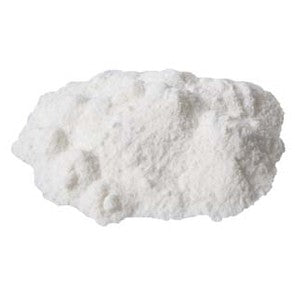
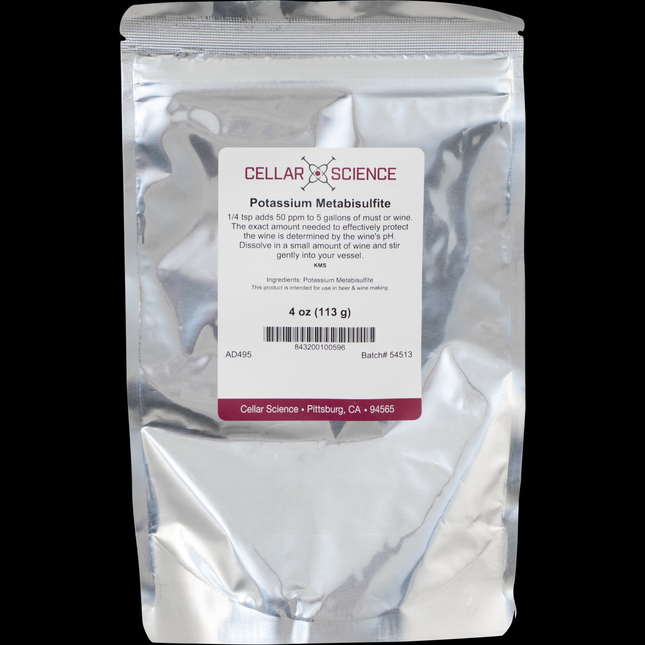
Potassium Metabisulfite
Potassium Metabisulfite, (often referred to as "SO2", "sulfites" "meta", or "meta-bi") has several uses in winemaking. At the crush, sulfites are generally used to help control the spoilage bacteria and indigenous yeast that may already be present both on the fruit and in the winery (i.e. on the picking bins, processing equipment, tanks, tubing, etc). The amount generally used is enough to inhibit most of the unwanted organisms but not enough to hinder a cultured yeast, which has a higher tolerance to sulfites than most of the indigenous organisms do. This inhibition effectively "wipes the slate clean" for the cultured yeast to step in and rapidly colonize the must so that it can effectively dominate the subsequent fermentation. In addition, sulfites also help to inhibit the enzymatic browning of both musts and finished wines so that all of their delicate complexities can be preserved. Later, during storage and in the bottle, sulfites at the proper levels will further protect a wine by continuing to inhibit spoilage organisms, as well as by scavenging oxygen. Note that the exact amount needed to effectively do the job is determined by the pH of the wine. Refer to our MoreManuals! on Red or White Winemaking or one of the winemaking books that we offer for a complete explanation on how to properly manage sulfites. In addition, it's important to keep in mind that free SO2 levels fall faster in wood cooperage than in glass or stainless, so if you are using a barrel you will most likely need to manage sulfite levels more closely. The most common form of Metabisulfite is as a powder which is fixed with potassium or sodium. 1/4 tsp of Potassium Metabisulfite adds 50ppm to 5 gallons of must. Old Metabisulfite loses potency with time and should be replaced every year to assure that you are getting correct levels. You can use old Metabisulfite to make solutions for sanitizing equipment.
$6.99
-
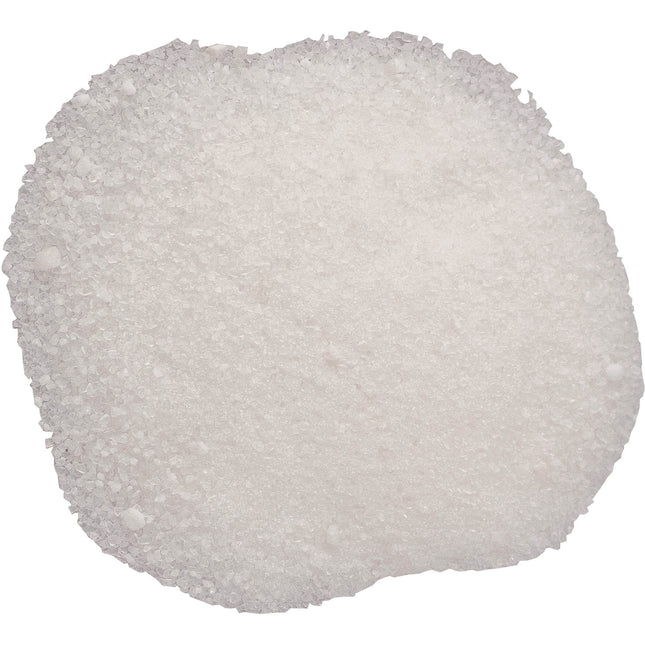
Tartaric Acid
MoreWine!'s Tartaric Acid is processed naturally in Europe from grapes and is the preferred acid for adjusting acid levels in wine. Be aware that a lot Tartaric Acid available to home winemakers is artificially made, comes from China, and does not integrate into the wine as well. Some of this tartaric includes the designation of "food-grade". Because MoreWine! packages this product you can be assured you are getting the highest winery-grade quality. 3.8g per gallon adjusts acidity by +.1%. As a note: some tartaric acid will drop out of suspension as potassium bitartrate if you are doing any cold stabilization. You might want to re-test total acidity after cold stabilization.
$5.99
-
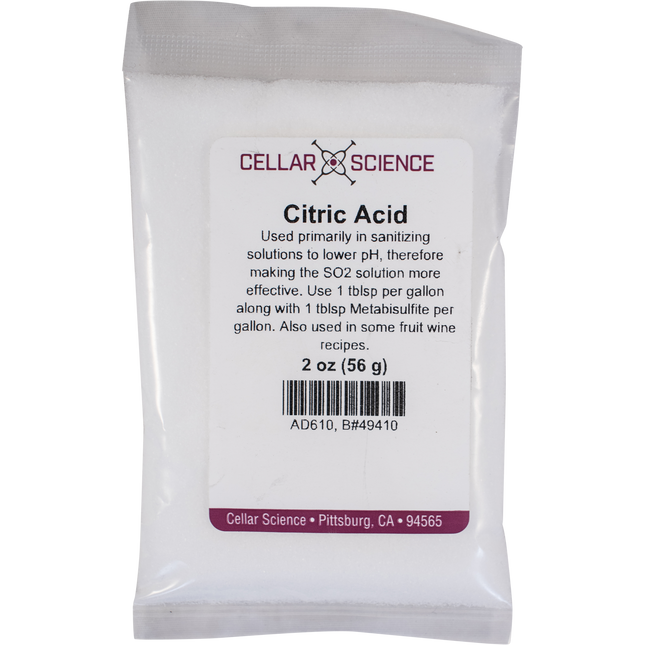
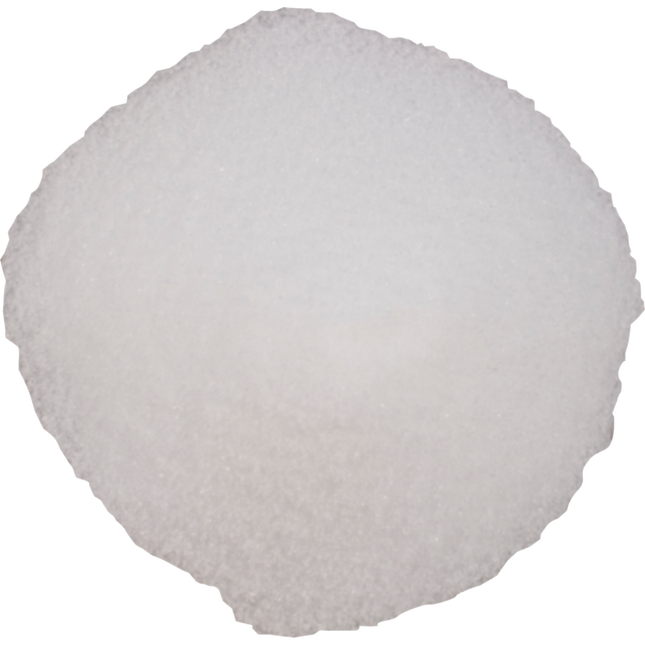
Citric Acid
Used primarily in sanitizing solutions to lower pH, therefore making the SO2 solution more effective. Use 1 tbsp per gallon along with 1 tbsp meta per gallon. Citric is not added directly to must prior to either primary or ml fermentation as its metabolism can lead to volatile acidity. A rough approximate of weight is 1 tsp = 4 grams. We highly recommend using a scale to weigh the product for an accurate dose. We do not recommend relying on these rough conversions for accurate dosage rates. Domestically produced in the USA.
$2.99
-
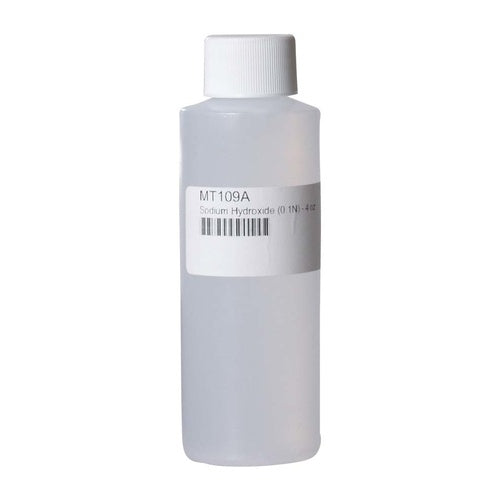
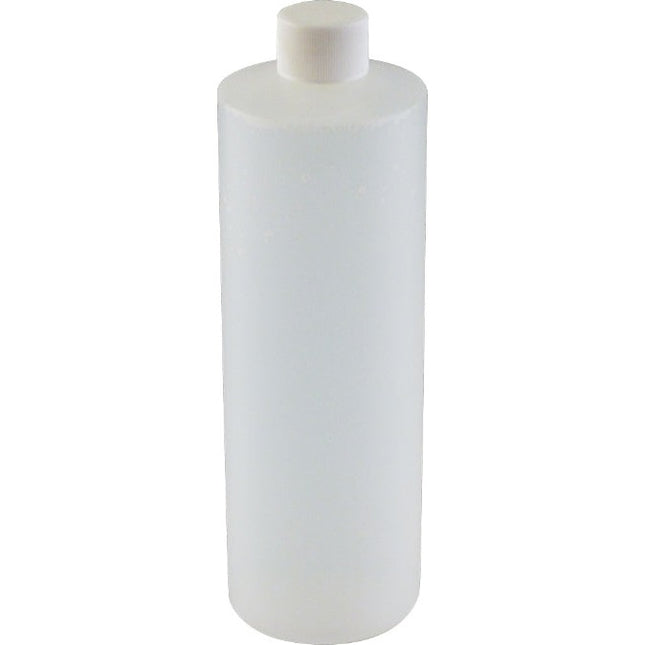
Sodium Hydroxide (0.1 N)
Replacement Sodium Hydroxide for the CellarScience® Acid Test Kit (W501CS) or any other acid test kit which uses 0.1N Sodium Hydroxide. Please Note: This Sodium Hydroxide is 10x stronger than the MT110 product that is used with our MT140 Aeration Oxidation SO2 Test Kit. They are not interchangeable.
$5.59
-
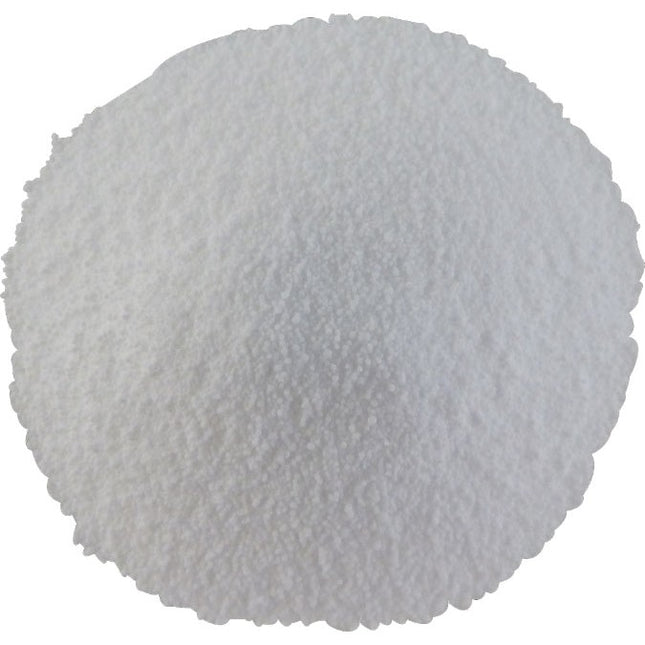
Potassium Carbonate
Potassium Carbonate is used to lower acidity levels in wine. 3.8 grams per gallon will reduce acidity by about .1%. Potassium Carbonate requires that the fermenter be stored cold for several weeks after application (please see our guides to Cold Stabilization in the documents tab above). During the period of cold stabilization the tartaric acid drops out as potassium bitartrate. Doing a trial run with a small amount is strongly suggested to determine exactly what the drop in acidity will be. Calcium carbonate can be used in a similar manner and does not require cold stabilization. However it adversely affects flavor, takes month to precipitate out of solution, and preferentially reduces tartaric acid first before affecting malic or citric acid. A rough approximate of weight is 1 tsp = 8.3 grams. We highly recommend using a scale to weigh the product for an accurate dose. We do not recommend relying on these rough conversions for accurate dosage rates.
$1.99
-
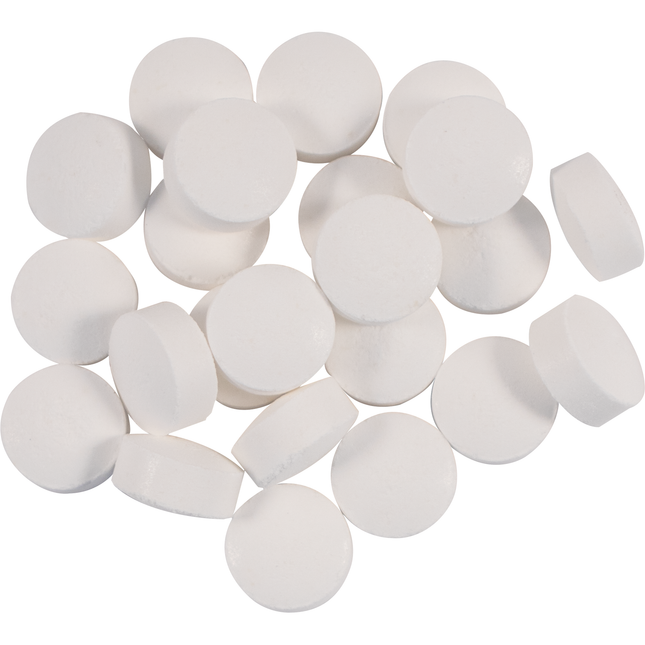
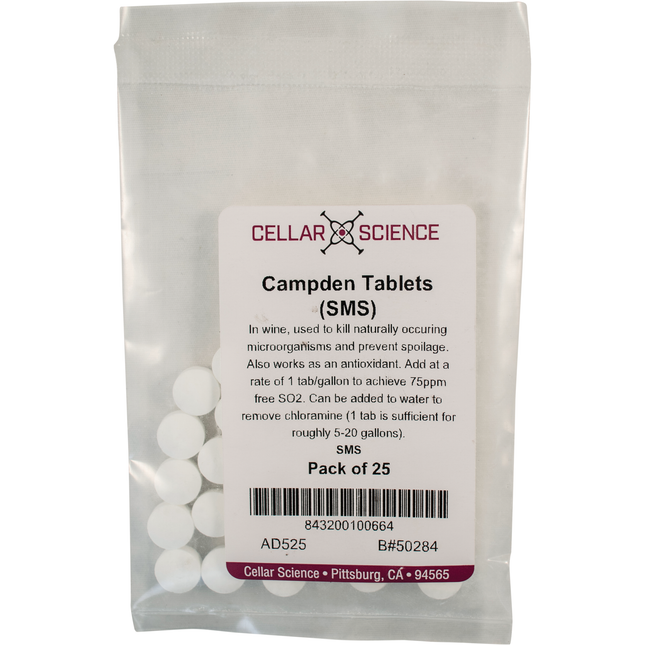
Campden Tablets - Sodium Metabisulphite (25 Tablets)
An essential ingredient in winemaking. Sodium Metabisulfite, (often referred to as SO2, sulfites meta, or meta-bi) has several uses in winemaking. It is used at the crush, to help control the spoilage bacteria and indigenous yeast that may already be present on the fruit or the equipment. The amount used is enough to stop most of the unwanted organisms but not enough to hinder a cultured yeast, which has a higher tolerance to sulfites. This effectively “wipes the slate clean” for the cultured yeast to step in and rapidly colonize the must. Sulfites also help to inhibit the enzymatic browning of musts and finished wines. During storage and in the bottle, sulfites at the proper levels will protect a wine by continuing to inhibit spoilage organisms, as well as by scavenging oxygen. Campden tablets are Sodium Metabisulfite in an easier to measure format. Adds 75 ppm of sulfites at the rate of one tablet per gallon. These must be fully ground-up prior to use. Potassium Meta-bi in powder form, AD495 or AD500, is much easier to use if you have a scale and does not add sodium to your wine. It is possible the sodium could contribute a very small salty flavor. Especially when making white wine it is preferable to add potassium over sodium since added potassium can later help with cold stabilization. For more information refer to our MoreManuals! on Red or White Winemaking or one of the winemaking books that we offer for a complete explanation on how to properly manage sulfites.
$1.99
-

Solvent/Developer for Chromatography Kit
Refill solvent for our Chromatography kit. 200ml. Contains n-butanol, formic acid and bromocresol green. Should be used in well ventilated area.
$64.99
-


Sodium Hydroxide (0.01 N)
Sodium Hydroxide (0.01 N)
$9.99
-

Phenolphthalein - 1% 1oz
Replacement jar of phenolphthalein indicator for the W501 Acid Test Kit. This phenolphthalein is suitable for acid test kits from other suppliers as well. Phenolphthalein will often turn colorless in acidic solutions and red in basic solutions.
$4.99
-


Campden Tablets (Potassium Metabisulfite)
In wine, used to suppress naturally occurring microorganisms and prevent spoilage. Also works as an antioxidant. Add at a rate of 1 tab/gallon to achieve 75 ppm free SO2. These tablets use potassium metabisulphate as opposed to sodium metabisulphate. Potassium based campden tablets are generally preferred by winemakers who do not want to add excess sodium into their wine. Can also be added to water to remove chloramine (1 tab is sufficient for roughly 5-20 gallons)
$1.99
-

HCL 0.01 N - 1 oz
A 1oz bottle of 0.01N Hydrochloric Acid, used in our MT140Home SO2 Test Kit. Store in a cool, dry place. 3-4 month shelf life at room temp once opened. Can last a little longer in the fridge, but please allow to come to room temp before using in your tests.
$8.99
-


Ascorbic Acid
Ascorbic acid is a quick-acting and powerful antioxidant that is used in white winemaking to protect against light and short aerations, such as racking and bottling. It works by rapidly converting dissolved oxygen into hydrogen peroxide before it has a chance to react with oxidative enzymes and cause browning. However, this hydrogen peroxide itself needs to be removed from the wine in order to avoid the very phenomenon that was trying to be avoided in the first place, namely oxidizing the wine. The answer lies in always making sure that the free SO2 levels are correct, both before the ascorbic addition is to be made and after. (Note that "Titrettes" are not accurate enough for this, and that a more precise means of determing free SO2 is needed, such as an Aeration-Oxidation set-up). Addition rate is around 50 mg/l (ppm) as long as the free SO2 is maintained at 30 mg/l (ppm). A rough approximate of weight is 1 tsp = 3.2 grams. We highly recommend using a scale to weigh the product for an accurate dose. We do not recommend relying on these rough conversions for accurate dosage rates.
$2.49
-

Chromatography Standard - Malic (1 oz)
Chromatography Standard - Malic (1 oz)
$2.99
-

Acid Standard Replacement Kit for MT930
1oz each of the 0.3% Malic, Lactic and Tartaric Acid standards for the MT930 Malolactic Chromatography kit.
$4.99
-

Chromatography Standard - Lactic (1 oz)
Chromatography Standard - Lactic (1 oz)
$2.79
-

Chromatography Standard - Tartaric (1 oz)
Chromatography Standard - Tartaric (1 oz)
$2.79
-

Hydrogen Peroxide 3% - 16 oz
Hydrogen Peroxide 3% - 16 oz
$6.99
-


Five Star | Citric Acid | 50 lbs
Powdered citric acid. Adjusts pH, without a large impact in overall flavor.
$223.99


























